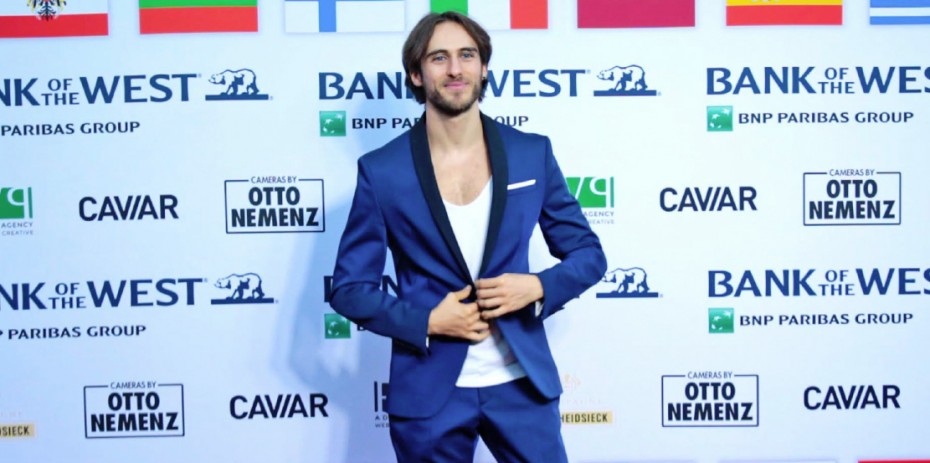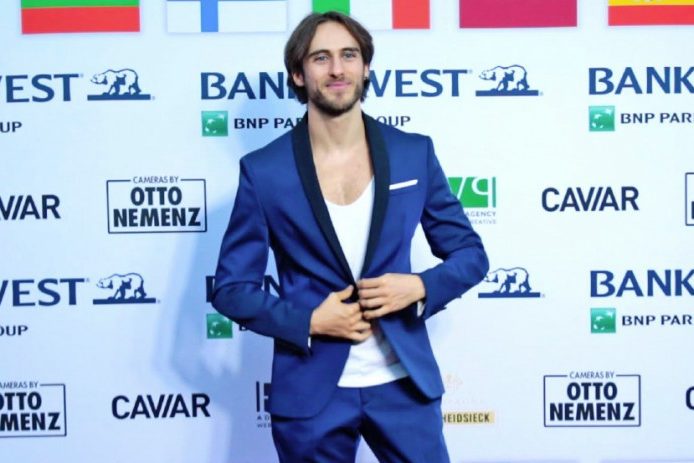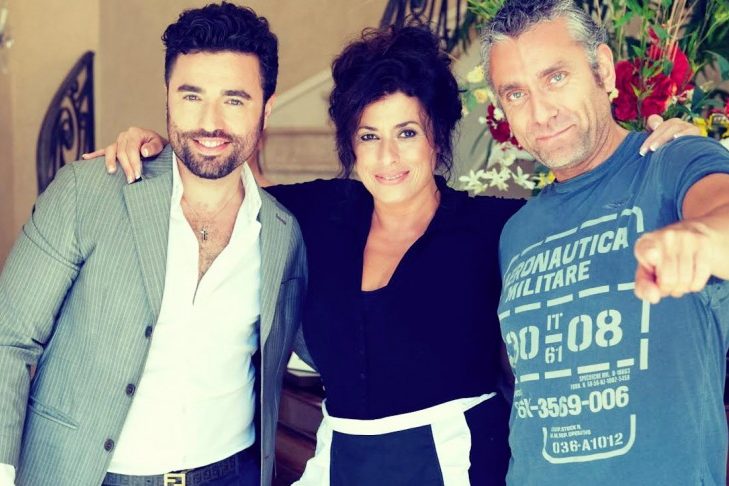The American Cinematheque presented the European Film festival on Thursday, September 24th, for the opening night at the Egyptian Theater in Hollywood. With special screenings of foreign films from Germany, Greece, and many more, Italian filmmaker Simone Borrelli’s short film Eddy was a remarkable humanitarian presentation.
The following screenings consisted of films from Spain, Poland, Bulgaria, etc. and were presented at the Aero in Santa Monica from Friday September 25th until Sunday September 27th.
Simone Borrelli was born in Crotone, Calabria, Italy on November 5th, 1985. As an Acting and Dramatic Arts graduate from the Italian Academy of Dramatic Arts in Bologna, he has built a career in the entertainment industry as a director, actor, musician, singer, and composer; therefore, he was heavily involved as the scriptwriter, director, protagonist, and musician for his film Eddy.
Simone has been recognized and awarded the “Giusto Monaco” vocational award in 2004 for Best Young Actor. Eddy first premiered in Strasbourg on October 15th, 2014, and was awarded the Official Human Rights Movie of 2015 by The Council of Europe and later was awarded the European 12 Star City Award of 2015 in Paris.
Addressing the harsh circumstances caused by the Syrian crisis, the film portrays the struggles of volunteer doctors, the deaths of Syrian children, and terrorists affecting the entire country and people of Syria.
The cultural and social significance of the film is being recognized throughout the world and it is bringing attention to the harsh circumstances that the Syrian people are facing in their country.
Where did your inspiration for the short film Eddy come from?
As a musician, I was initially working on a song with a similar topic as the film. Where a man is a volunteer doctor in Syria and wants to tell a story about this operation to his unborn daughter. He would like to purify the world from bad things and help bring medical attention to Syria. Then I received a proposal to work on a topic that is very difficult: violence against children. I decided to write this story for film but I refused to offer this part to an actor because it is such an important role. I’ve met lots of doctors who did these things in real life and therefore, I decided to address it myself because of my strong desire to tell this story to the world.
How were you able to produce your short film? What financial struggles did you encounter?
Money is an interesting topic for this project because it was a great investment, as we received money from the console of Europe. I’m proud to say we completed the project on a low budget of about 15,000 euros and shot the entire film in about 4 days. We started pre-production in February and began production in July. It was a lot of hard work. I started as a screenwriter, then as the director and lead actor, and finally as the composer and editor. I personally have not earned money from this project but did receive a lot of support from The Presidency of the Council of Ministers of the Italian Republic, Unicef, Amnesty International, International Red Cross and Red Crescent Movement, and so many other great supporters. All this support is to tell the story of what is currently happening in Syria. There are people that go there and die trying to make the world better and we want the world to know the truth behind it all.
Eddy is a film that addresses social and cultural issues of utmost importance. What message in particular would you like to convey through this film?
My intention is for people to be aware of the dangers civilians and volunteer doctors face in a war zone. At this moment in history, this is happening in the Middle East, but if we are not aware it could happen – it is happening- in other places.
Being acclaimed the “Official Human Rights Movie of 2015” by the Council of Europe, do you feel a social pressure in addressing these topics?
Absolutely. I have felt that from the first moment I began to work on this film. Cinema has an incredible power to reach a diverse mass of people everywhere. I like the kind of cinema where a story can open the mind of someone and when they leave the theater they feel a change and a new awareness.
Shot entirely in the Province of Reggio Calabria in Italy, the film’s setting is meant to emulate the Euphrates’ valley in Syria. What struggles did the production team encounter in doing so?
Firstly, when I wrote the story of Eddy and of the “green parrots,” I wanted to set the story in Afghanistan. However, I needed to find a way to film it in a place that I knew well and that would be safe. I was born in the countryside of southern Calabria that is similar to the Syrian landscape. When I arrived with the crew, we climbed a nearby hill and at its peak we found a place absolutely perfect. In the film, the name “Eddy” represents a sign of destiny.
Linked to the film and all the themes it deals with, I think that probably is the same thing that happened with the productions location.
Being Italian and not Syrian, how did you overcome this cultural difference while shooting? What approach did you take to accurately portray the Syrian culture?
I studied about their habits and customs through books, the Internet, and I especially talked to many people who have traveled there both recently and in the past. I focused more on volunteer doctors who had experiences there. I learned how difficult it was for a Westerner to understand their culture. The differences create a valuable richness but also a huge misunderstanding. I personally think our differences generate a richness of values instead of barriers.






























